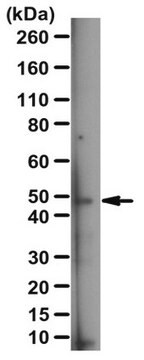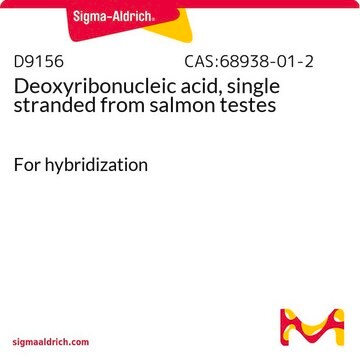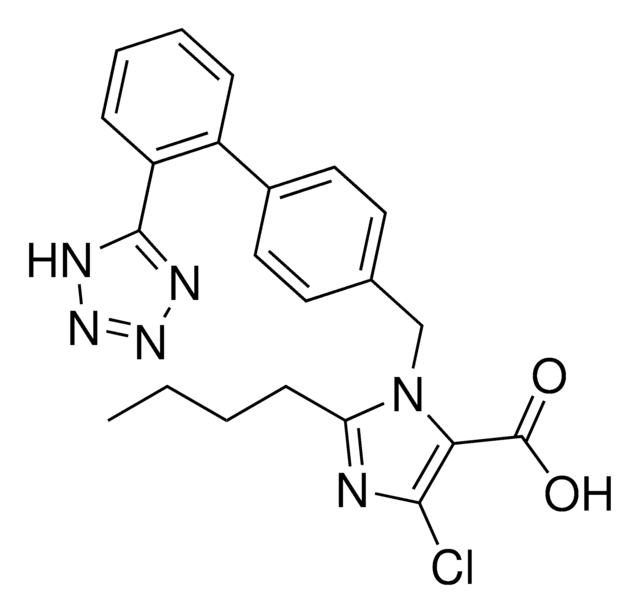AB3538P
Anti-Monocarboxylate Transporter 1 Antibody
Chemicon®, from rabbit
Szinonimák:
MCT1
About This Item
Javasolt termékek
biológiai forrás
rabbit
Minőségi szint
antitest forma
affinity purified immunoglobulin
antitest terméktípus
primary antibodies
klón
polyclonal
tisztítva
affinity chromatography
faj reaktivitás
human
gyártó/kereskedő neve
Chemicon®
technika/technikák
ELISA: suitable
western blot: suitable
NCBI elérési szám
UniProt elérési szám
kiszállítva
dry ice
célzott transzláció utáni módosítás
unmodified
Géninformáció
human ... SLC16A1(6566)
Egyediség
Immunogen
Alkalmazás
Neuroscience
Ion Channels & Transporters
ELISA: 1:10,000-1:100,000 using 50-100 ng control peptide per well.
Optimal working dilutions must be determined by the end user.
Fizikai forma
Tárolás és stabilitás
Egyéb megjegyzések
Jogi információk
Jogi nyilatkozat
Nem találja a megfelelő terméket?
Próbálja ki a Termékválasztó eszköz. eszközt
Tárolási osztály kódja
12 - Non Combustible Liquids
WGK
WGK 2
Lobbanási pont (F)
Not applicable
Lobbanási pont (C)
Not applicable
Analitikai tanúsítványok (COA)
Analitikai tanúsítványok (COA) keresése a termék sarzs-/tételszámának megadásával. A sarzs- és tételszámok a termék címkéjén találhatók, a „Lot” vagy „Batch” szavak után.
Már rendelkezik ezzel a termékkel?
Az Ön által nemrégiben megvásárolt termékekre vonatkozó dokumentumokat a Dokumentumtárban találja.
Tudóscsoportunk valamennyi kutatási területen rendelkezik tapasztalattal, beleértve az élettudományt, az anyagtudományt, a kémiai szintézist, a kromatográfiát, az analitikát és még sok más területet.
Lépjen kapcsolatba a szaktanácsadással








